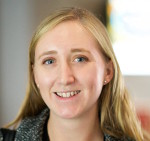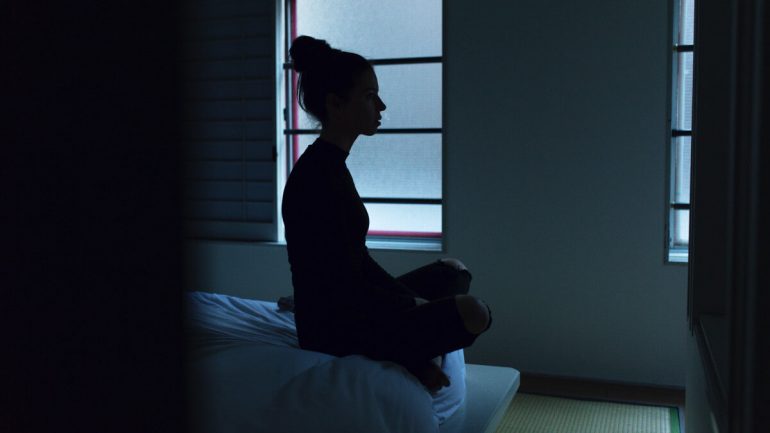Welcome to a BetaKit weekly series designed to help startups and entrepreneurs. Each week, investors tackle the tough questions facing founders today. Have a question you would like answered? Tweet them with the #askaninvestor hashtag, or email them here.
This week’s question turns the table and focuses not on founders, but investors. The topic is a basic one, but fundamental: worry.
As humans, it’s only natural for us to worry about slightly different things. What I worry about in the context of being an investor is likely different than my partners. So I asked my team members at the Impression office what they worry about to get a sense of themes of VC worries. It turns out this was a useful exercise as four key areas came to the fore.
We worry about doing a good job, about our founders, their companies, and stuff out of our control. I’ll dive into each of these categories to give you a flavour of what allows investors to sleep like a baby at night (waking up every few hours screaming and crying).
Our jobs
Our jobs as venture capitalist is to find great teams, back them, and provide significant returns for our investors. Like all occupations, there are aspects of the job that are harder than others. Naturally, the harder parts are a source of worry. The three most significant concerns here are grossly misjudging a team, fear of missing out, and missing something critical in due diligence.
Misjudging a team means investing in a team that has the appearance of being able to build something big, but after investing, finding out they can’t. That’s a nightmare for any VC.
This nightmare is one of the reasons we see a lot of investors preferring to back repeat entrepreneurs. If they have a track record of execution, our worry about lack of ability is significantly reduced.
Probably my biggest worry, which I have no control over, are VCs who act grossly in their self-interest rather than their investors, and therefore distort the VC market.
There are many blogs written in the last 10+ years on the subject of power-law distribution of venture returns. They all boil down to one theme: “As a VC, you can’t afford to miss out on the one 100x deal done every year.” This fear of missing a big deal is one of the causes of fear of missing out (FOMO). We’ve seen some investors do ridiculous things because of it. Clearly, FOMO is a source of worry for those investors. While FOMO isn’t a source of worry for me personally, I wanted to address it as it’s very real and does cause me worry about what other investors are doing. More on that in a later section.
However, for many VCs, FOMO has turned into an excuse not to do any due diligence. I don’t know how these investors sleep at night because missing something in DD is something that does keep me up at night.
We only lead deals at Impression which means we commit to running a meticulous due diligence process. Our goal is to understand all reasonable possible risks in a company. However, we know there is a fundamental information asymmetry between founders and their investors: they run the business day-to-day. We don’t. Even when founders are entirely forthcoming, they may also be innocently oblivious to the very thing that will kill their startup. Correctly done, due diligence should uncover these potential pitfalls to enable us to help founders see around corners.
Founders
Our founder’s success is our success, which means we tend to worry about our founders. After an investment, we continue to worry about founders, even those who are proven executors, suddenly hitting the proverbial brick wall. It happens. Whether it’s product development that goes into a tailspin or sales that can’t seem to connect with potential customers. Then there are core founder issues. In a previous AAI, we’ve discussed that at certain stages of company growth, early-stage founders can lose interest. These are all sources of worry.
It’s a rare CEO that, during fundraising, tells us they are not good listeners and won’t take our advice. It happens, and kudos to them for being honest! However, we worry about CEOs who, after investment, communicate poorly with us and do not listen. If a CEO chooses not to follow our advice, that’s perfectly acceptable, but a founder that doesn’t even listen to advice is a big problem and a big source of worry.
Companies
There is lots to worry about with the companies we invest in. Everything from CAC being too high, or LTV being too low, or the product not being scalable. Luckily, most founders worry about these same things. Paradoxically, this lowers the amount of worry we have.
That said, the most significant worry we have when it comes to companies is if/when are they going to exit for our investments. VC get paid to generate monetary returns for their limited partners. No exits mean no returns. No returns mean we lose our jobs. Everyone is worried about losing their jobs at some level. The longer we go without exits, the more worried we tend to get.
Stuff out of our control
Lastly, like everyone else, we worry about the stuff we have no control over. We probably shouldn’t. Will our investment get swept aside by regulatory changes? Will the competitive landscape change to favour the incumbents such that they have an insurmountable lead? Will our credibility/reputation get hurt by “fake news”? All things we worry about at some level.
Probably my biggest worry, which I have no control over, are VCs who act grossly in their self-interest rather than their investors, and therefore distort the VC market. We all act at some level in our self-interest; unfortunately, there are a number of venture funds that exist whose partners are sufficiently rewarded by management fees that they aren’t working to generate returns. They will pay up for an investment to get a logo on their portfolio page. They are happy to put out a term sheet that is refractory to a company’s future; it may win them the deal, but will handicap the venture’s success in the long term. In short, they don’t care if they give venture capital and VCs a bad rap.
That worries me because venture capital has the ability to unlock tremendous value for society by enabling the hyper growth of world-changing companies. That’s the VC business I aim to be a part of every morning when I wake up.
Sarah’s take

Christian managed to capture most of my job worries (and made me feel a little less alone in the world knowing someone else shares them). There’s a common link for me across all those dimensions; 99 percent of my worrying time goes to relationships and culture. Am I being helpful to founders? Do we mutually respect the other’s perspective? Am I spending enough time with the iNovia family, investors, and portfolio companies alike? Has anything shifted in our team culture for the worse? Are there blind spots in our culture that we’re not seeing? Am I being responsive enough to my team? Does anyone I work with feel unsupported and like they’re making decisions alone? Is a bad interaction a one-off experience or a signal that I need to re-evaluate my approach? Are my goals becoming more ambitious as my achievements grow? Am my goals supporting our firm’s goals? Am I holding myself accountable?
At the end of the day, most of the questions boil down to the same nagging fear – are my priorities in the right place? I take an hour on the first Monday of each month to reflect on the past four weeks. I look at mistakes I’ve made, people I haven’t spent enough time with, areas of myself that I haven’t invested into enough (mental health, work relationships, personal relationships, physical well-being, intellectual growth) and re-prioritize for the next month.
Got a question for the investors? Email them here.
Photo via Unsplash


